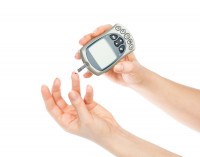 This can open the door for the development of other treatments for diabetes that provides the same effect.
This can open the door for the development of other treatments for diabetes that provides the same effect.
Researchers have observed that 85 percent of patients with type 2 diabetes who also undergo gastric bypass recover from the disease within a few days after the said procedure. Many show blood sugar levels normalizing even before any weight loss is evident. Researchers are in the dark as to why this happens. The new observations made by the Lund University researchers may help shed some light into this.
In a gastric bypass procedure, food eaten bypasses ma majority of the stomach and the duodenum. A small part of the upper stomach is connected directly to the small intestine. In other cases, doctors insert a catheter into the portion of the stomach that no longer comes into contact with food as a precautionary measure. This provided the researchers with the means to study the difference between food intake before and after the said procedure.
In the said study, the participants were given a set amount of a nutritional drink. Blood samples were then taken before, during and a short interval after the said drink was ingested. The next step involves researchers giving the set amount of the same nutritional drink by injecting into the catheter over the same length of time that the participants have taken to drink it. The same blood samples were also taken at the same intervals. The researchers then compared the results.
The comparison study revealed a major difference between the stomach activities in the two separate study cases. When the patient drank the nutritional solution, the insulin levels in the blood rose as much as five times as when the drink was injected into the closed off stomach. The intestinal hormones that also affect blood sugar regulation also rose sharply.
According to Nils Weirup of the Lund University Diabetes Center, “We believe these changes are part of the answer to why gastric bypass cures type 2 diabetes. We have looked at just a few intestinal hormones. There may be a hundred or more involved in the body’s complex sugar metabolism.”
Identifying the different mechanisms involved may pave the way for individualized diabetes treatments in the future. Someday, researchers may be able to find a means to achieve the same results by using pills instead of surgery.
Source: Lund University (2013, May 1). Gastric bypass findings could lead to diabetes treatment. ScienceDaily. Retrieved May 7, 2013, from http://www.sciencedaily.com/releases/2013/05/130501090648.htm
Tags: Diabetes News, diabetes research, gastric bypass, type 2 diabetes